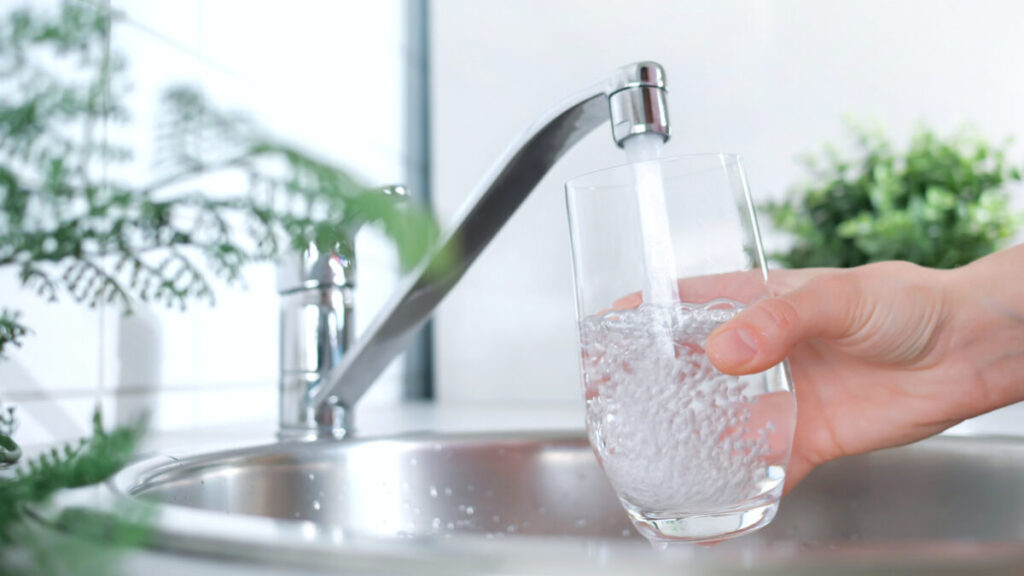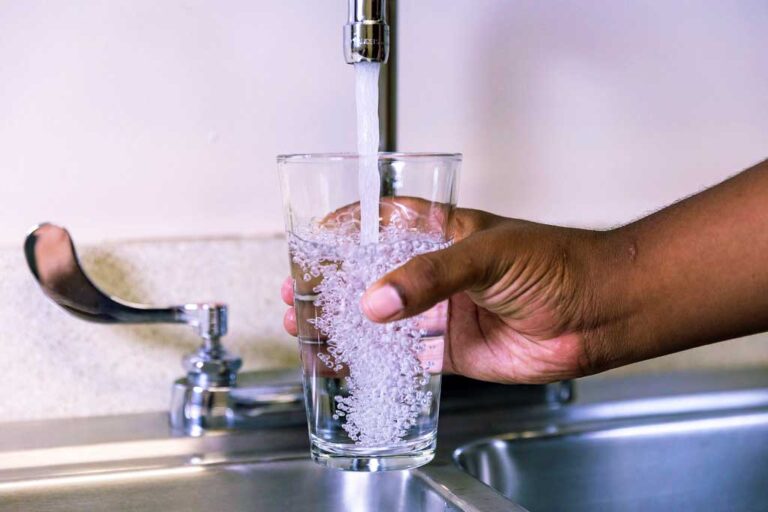Many of us have wondered at some point if it is okay to drink shower water. Because after all, it is coming from the same place or source as tap water, right? But is shower water safe to drink?
Just because it looks clean doesn’t mean it is safe, it still can contain meritorious dangerous particle that can make anyone unhealthy.
Shower water is basically tap water that comes through a showerhead. And it might seem harmless as it comes from your home’s water supply, but its quality can be different. The water that comes from the shower usually contains bad chemicals, bacteria, or other harmful contaminants or things that you shouldn’t drink.
So, can you really drink water from your shower? Is it safe? If not, then why? To answer, we will discuss all the things that could make it unsafe. Moreover, even if the shower water is safe up to certain extent, then how much safe it is? Further, we will also see if we is it safe to drink filtered shower water.
How is the quality of shower water?

The water that comes to your tap, and shower, is basically sourced from the same water system tanks located near your house. The local water utilities treats the water properly and is filtered to meet the safety standard for general use like bathing, washing, and cooking.
Though this water is treated and filtered, it is not fit for drinking yet.
When examined, this water may contain higher concentrations of chemicals and impurities, which makes it impure and unfit to drink.
This is due to long exposure of treated water with air, heat, and surfaces that can trap contaminants. So, it would be safe for external use, shower water will not be that pure or clean, and will be unfit to consume for drinking.
Is Shower Water Safe to Drink?

NO, shower water is not safe to consume for drinking purposes. As it comes from the same municipal corporation water systems as of tap water, it can contain high amounts of contaminants like chlorine, chloramine, bacteria, heavy metals or other harmful products.
These contaminants are not that harmful, but become vulnerable when ingested or exposed to skin, for a longer period of time, or in higher quantities. So, be aware, and never, never consume shower water for drinking purposes
Various Contaminants in Shower Water
There are various contaminants present in the shower water, which makes it unfit for drinking. These contaminants not only affect the quality of water but also the taste of water. Let’s dig deep, and learn more about them.
Chlorine and Chloramine
The most common disinfectant easily present in the market is chlorine and chloramine. Most of the Municipal Corporation Water Systems use the same disinfectant to disinfect water to make it free of pathogens before releasing it for daily consumption.
Usually chlorine is used in small amounts to disinfect the water body. But sometimes, longer exposure to chlorine treated water could cause irritation in your skin, and so in your respiratory system.
And when it comes to drinking, chlorine and chloramine treated water can cause unpleasant taste and potential health concerns if consumed in higher concentrations.
Trihalomethanes (THMs) and Volatile Organic Compounds (VOCs)
When water is treated with chlorine, it interacts with organic particles or materials present in water. After reaction, it creates very harmful byproducts like Trihalomethanes (THMs) and Volatile Organic Compounds (VOCs).
And these harmful byproducts can cause various health concerns like increased cancer risks and damage to liver and kidneys.
When heated, the steam created in the shower can also cause these compounds to become airborne, and lead you to inhalation of vapours. And making the condition even worse, if drunk, it will put a risk of ingesting these harmful chemicals.
Heavy Metals
Running water in your taps or shower sometimes contains traces of heavy metals like lead, mercury and arsenic. These metals might have entered the water supply through corroded pipes, industrial runoffs, or contamination during the water treatment process.
While small traces of these metals are present there in the water bodies, consuming these metals for a long period of time, or in a high amount can lead to serious health issues like kidney damage, neurological problems, or development in children.
Hard Water Minerals
Water bodies that have a higher concentration of minerals like calcium and magnesium are termed as hard water. Hard water is generally safe for bathing, and is perfect for washing clothes, but not good for drinking.
These hard water minerals – calcium and magnesium, affect the taste of the water, and when consumed for a longer period of time, or in large quantities, become very harmful, and impact the palatability and quality of the water for drinking purposes.
These hard metals also cause build-up in pipes, geysers, taps, and in showerheads, which eventually affect the quality of water.
Bacteria, Algae, and Fungi
Stagnant water often harbors bacteria, fungi and algae. These microorganisms need warm, humid conditions to survive, and washrooms are a perfect place for them to thrive.
These microorganisms are the result of stagnant water in piper, showerheads or other surfaces in your bathroom.
And when these microbes are consumed, in the shower, can cause major health issues, from digestive issues, skin infections to respiratory problems.
To minimize the growth of these microbes, regular cleaning of your showerhead and plumbing can only help.
Health Risks Associated with Drinking Shower Water
Shower water, when consumed, may cause a range of health issues due to the contaminants found in them. For example, long term exposure to chlorine, chloramine and byproducts like trihalomethanes (THMs) and Volatile Organic Compounds (VOCs) has directly been linked to an increased risk of cancer and respiratory issues.
Even traces of heavy metals like lead or arsenic, which might be present in water due to corrosion of pipes, can accumulate in the body over time, and potentially lead to poisoning and neurological damage.
Apart from these, bacteria, fungi and algae harboured in the shower water can cause digestive and respiratory infections, if ingested.
Prolonged exposure to such chemicals can also cause rashes and skin infections, if absorbed by skin. And shower water is not regularly tested, it’s better not to consume shower water.
Can You Drink Cold Water from the Shower?
People think that drinking cold water directly from the shower is safe. But they forget that be it cold water or warm water, the risk remains the same.
The amount of contaminants are almost the same, be it in the case of warm water or cold water. Cold water may still contain chlorine, chloramine, bacteria, algae, fungi and other harmful products.
So, be it cold water or warm, drinking water from the shower is unhealthy, harmful and unhygienic.
Can you drink shower filter water?
Shower filters can improve the water quality, or reduce the contaminants present in them, such as chlorine, heavy metals, bacteria, or other impurities present in them.
Moreover, shower filters consist of a casing that houses filtration media, such as activated carbon, KDF (Kinetic Degradation Fluxion) media or ceramic beads to remove the impurities or harmful particles present in them.
But, one has to keep in mind that shower filters enhance the quality of water for skin and hair. They basically remove the harmful chemicals, or reduce the hardness of the water, and make it consumable for bathing or other uses.
At the same time, it is totally not fit for drinking. In terms of consuming them for drinking, even shower filter water is not consumable at all.
If there is an emergency, you can consume the shower filter water only after sterilizing it or boiling it for drinking or cooking.
So, you can not drink even shower filter water. It is totally not advisable at all to consume shower filter water for drinking or cooking purposes. You can boil the water and sterilize it, before consuming, if there is an emergency.
Conclusion
So, we can say that even though shower water looks clean, drinking shower water is not safe.
It may contain contaminants like chlorine, heavy metals particles, bacteria, algae and other harmful particles. Even in an emergency, you should boil the water and sterilize it before consuming it.
Always stick to the water resources which are specifically made for potable water, for drinking and cooking. Stay healthy, save water, and consume clean and pure water!

